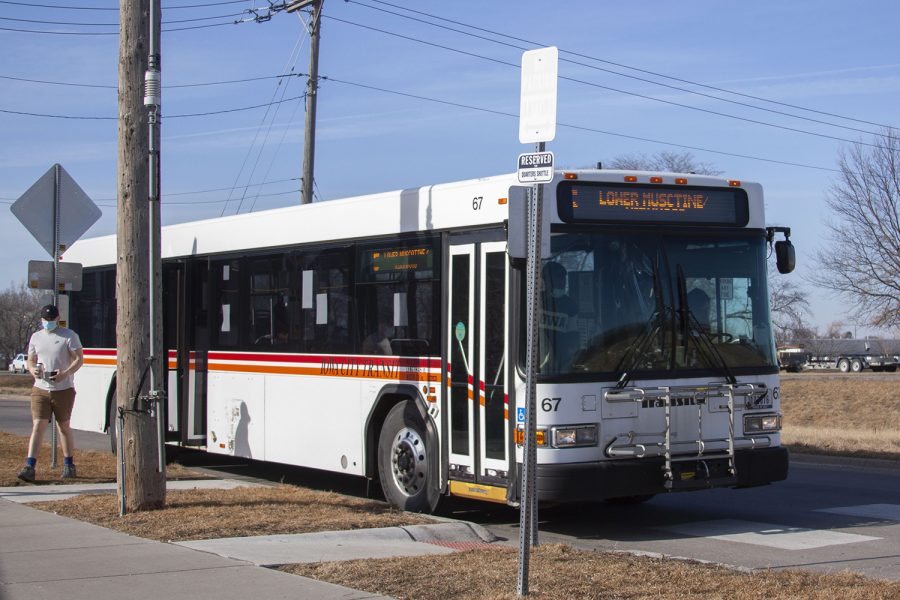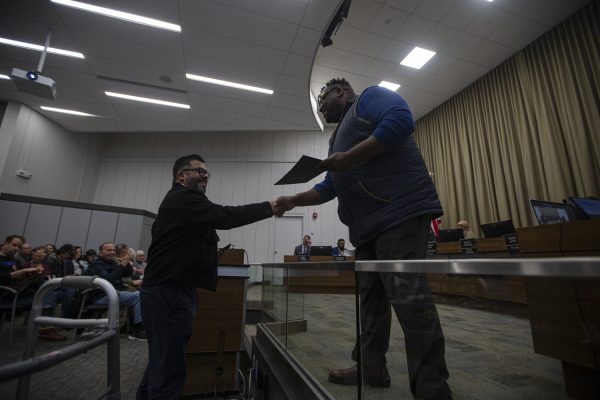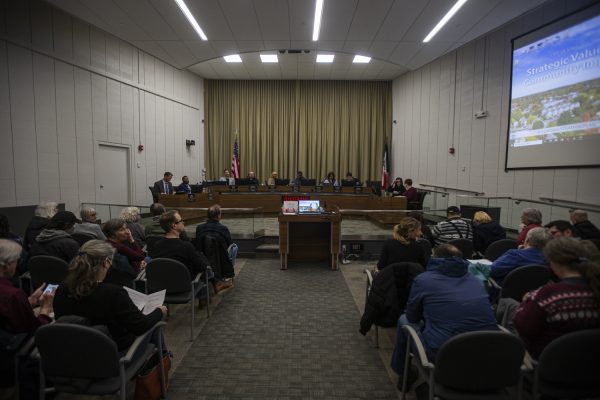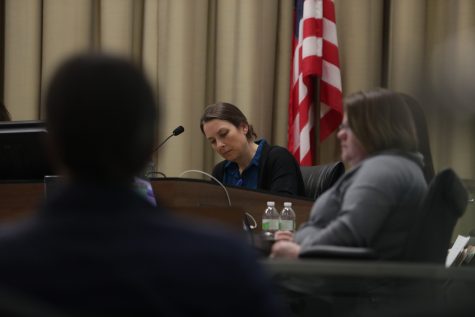Iowa City Transit looks to implement cheaper bus fares
Under recommendations from Iowa City City Council, the city’s transportation department launched a department-wide study aiming to revitalize the transit system in Iowa City. One goal is to implement cheaper bus fares in the Iowa City area transit system.
Passengers exit from the Iowa City bus to the bus stop at The Quarters apartment complex in Iowa City on Wednesday, March 2, 2022.
March 23, 2022
Iowa City officials are looking to implement cheaper bus fares for low-income residents after a City Council recommendation from summer 2021.
The Iowa City Transportation Department has already began implementing a series of changes to the department, including making transit in Iowa City easier and faster to ride alongside making fares more consistent across routes. The
These changes came out of the Iowa City Area Transit Study, which was presented to the Iowa City City Council in June 2021.
“Not a lot of people take advantage of it. So what City Council asked us to do in the transit study was to take a look at what to evaluate a potential zero-fare system where you know, the fares were prepaid in essence, but there’d be no fare to ride the bus,” Department of Transportation Director Darian Nagle-Gamm said.
As the city implements some changes based on the study, Mayor Pro Tem Megan Alter said she’s hoping to take the transit changes further, and she is planning to discuss lowering the transit fares for low-income residents in the council’s Strategic Plan, which will begin development in April.
Alter said as a new member of the council she is supportive of the department’s study and is hoping low-income transit fares lower barriers for people to ride buses.
“So, I know it’s something that’s pending, and we haven’t had the discussions yet, but it’s certainly something that I’m interested in,” she said.
Iowa City City Manager Geoff Fruin wrote in an email to The Daily Iowan that he does not know when resolutions regarding low-income bus fares will appear on a council agenda as city staff is currently preparing to bring weekend service routes to the council.
“The low-income fares are expected to come after the Sunday Service matter is finalized,” Fruin wrote.
Adding Sunday bus services has been planned for a while, but a shortage of drivers has delayed the implementation of the service, The Daily Iowan previously reported.
Curtis Brenton, operation supervisor for the Iowa City Transportation Department wrote in an email to the DI that cheaper bus fares will help low-income residents use transit more.
“The goal is to provide transportation assistance to those for whom our regular fares and pass fees are cost prohibitive to use consistently,” Brenton wrote.
In Iowa City, the fare to ride both Iowa City and Coralville buses is free to individuals 65 and older and under one dollar for Iowa City and Coralville youth.
Individuals 65 and older riding for free was one of the first changes stemming from the department’s study, which started in August 2021.
“We did have some changes as a result of that. So currently, right now as of last summer, if you are 65 and older you ride for free,” Nagle-Gamm said. “If you have a Medicare card, you can ride for free.”
Brenton wrote that the idea to have low-income transit fares in Iowa City comes from the department looking at other cities around the nation.
“Tri-Met in Portland, Oregon, Sound Transit in Seattle, Washington and MCTS in Milwaukee, Wisconsin are three that have successfully implemented low-income fare programs for qualified riders,” he wrote.
Alongside looking at other cities and council recommendations, the department also received input from social service agencies and the general Iowa City area public, Brenton said.
Nagle-Gamm said the department currently is unsure how the overall study will affect its budget. She said increasing community passage on buses is a goal the department is hoping to address with its study.
“That is the hope to make it easier, more affordable, and reduce one of the barriers to riding transit,” she said. “The goal is to ensure that everyone in the community has access to, good quality, safe transportation services.”













